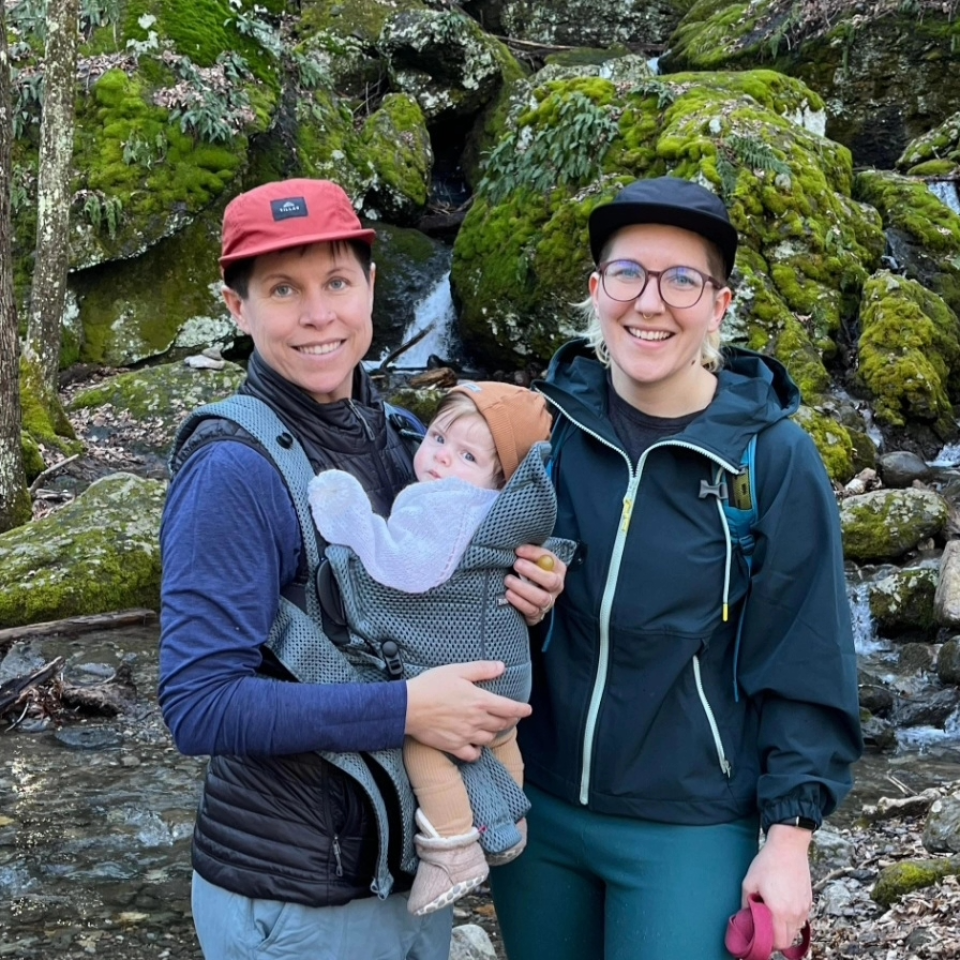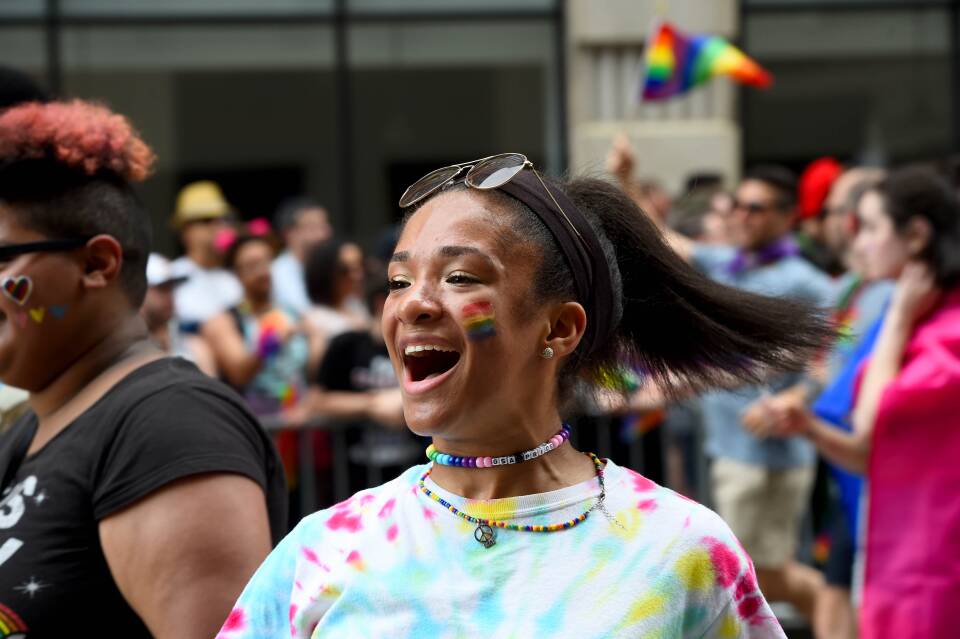Twenty years ago, on May 17, 2004, hundreds of couples lined up outside of City Hall in Cambridge to make history. They would become many of the first LGBTQ+ couples legally married in the United States.
On Friday, several of those couples gathered at Arlington Street Church to celebrate the anniversary with members of the LGBTQ+ community and allies.
Belmont residents Eve Alpern and Brenda Morris were lined up on that evening in Cambridge 20 years ago to secure their place in history.
“We left City Hall at 2 o’clock in the morning, we opened the door — and there were thousands of people celebrating on the lawn,” Alpern said. “And that’s the moment that it hit us that it was really historic.”
The ceremonies were thanks to the Massachusetts Supreme Judicial Court case Goodridge v. Department of Public Health.
Brought on by seven plaintiff couples, represented by GLAD (now the GBLTQ+ Legal Advocates and Defenders), the November 2003 decision was the first by a state's highest court to find that same-sex couples had the right to marry in the United States. Dozens of states followed, and ultimately, a 2015 Supreme Court Case — Obergefell v. Hodges — made same-sex marriage available across the country.
A new review released this week by the nonprofit think tank RAND found that, in states that legalized marriage for same-sex couples, “sexual orientation–motivated hate crimes and employment discrimination against LGBT individuals declined.”
Two of the plaintiffs in the Massachusetts case were Maureen Brodoff and Ellen Wade. The Newton residents are now celebrating their 20th marriage anniversary and a successful fight in the state’s Supreme Judicial Court.
It’s a fight that they say is far from over for LGBTQ+ people to get equal civil rights in the United States.
“There are a lot of issues that remain to be fought and struggled over,” Wade said. “One very prominent issue is for trans people to be who they are and live their lives as they choose to live them.”
Brodoff echoed her wife.
“We’ve been here before. We’ve certainly had to fight for our rights, and I think that you can’t be complacent,” she said. “We need to be optimistic, but we need to continue to work to help other people understand our positions and come along with us.”
GLAD is still a part of that charge. Ben Klein, GLAD’s senior director of litigation and HIV law, reflected on how much has changed in the decades since he came out as gay in 1979.
“We’re living in a real patchwork in our society. We have some places where LGBTQ people can thrive and live openly. We have so many parts of the country, including here in Massachusetts and New England, where it’s as difficult to be a young LGBTQ person as it was years ago, and we still face incredible resistance.”
More than one billion people across the world now have the right to same-sex marriage.









